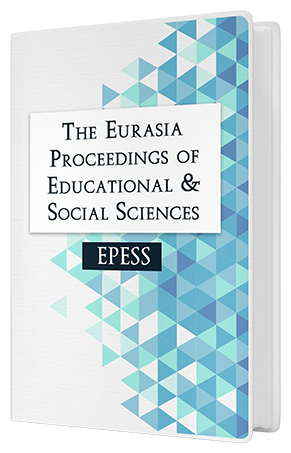Opinions of Academicians on Teaching Sociology Subjects in Social Studies Course
Keywords:
Sociology, Social studies, Social eventsAbstract
We live in an age of social changes where technological developments reach the highest levels thanks to the level of knowledge achieved. The direction of these changes, in other words, will be the most dynamic and openest part of the society. In spite of this importance that should be given to youth in terms of the future of our society, problems such as unemployment and inflation, especially caused by the inadequacy of the education system in general and the social structure in general, cause the young population to be worried about their future. It would be too optimistic to expect a mass of people who pursue their individual concerns about the future to take action by considering the general interests of society. Sociology starts with life science course in primary schools and continues with social studies course. Sociology is one of the main disciplines of the social studies course which includes many disciplines. The purpose of this research; The aim of this course is to examine the views of academicians about teaching sociology subjects in social studies course. The study group consisted of 4 academicians working in 4 different universities. This research was prepared by using semi-structured interview technique which is one of the qualitative research methods. The data of the study consisted of six open-ended questions with semi-structured views of academics. The analysis of the data was presented by shortening the answers given by the working group. According to the results obtained, social studies course is related to many disciplines, but it is obtained that sociology subjects are given less importance than history and geography course. In our country, suggestions have been made such as giving more place in sociology teaching of sociology due to refugee problem and social events.Downloads
Published
Issue
Section
License
Copyright (c) 2019 The Eurasia Proceedings of Educational and Social Sciences

This work is licensed under a Creative Commons Attribution-NonCommercial-ShareAlike 4.0 International License.
The articles may be used for research, teaching, and private study purposes. Any substantial or systematic reproduction, redistribution, reselling, loan, sub-licensing, systematic supply, or distribution in any form to anyone is expressly forbidden. Authors alone are responsible for the contents of their articles. The journal owns the copyright of the articles. The publisher shall not be liable for any loss, actions, claims, proceedings, demand, or costs or damages whatsoever or howsoever caused arising directly or indirectly in connection with or arising out of the use of the research material. All authors are requested to disclose any actual or potential conflict of interest including any financial, personal or other relationships with other people or organizations regarding the submitted work.




